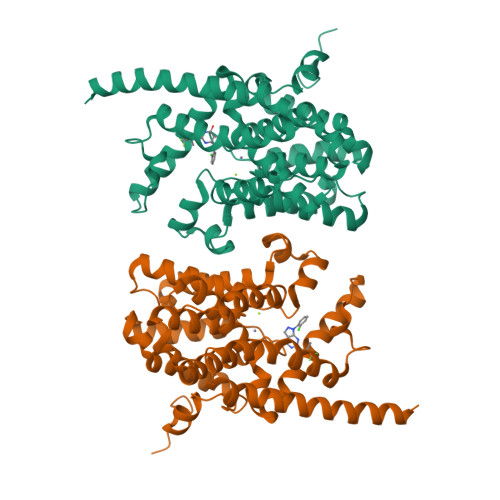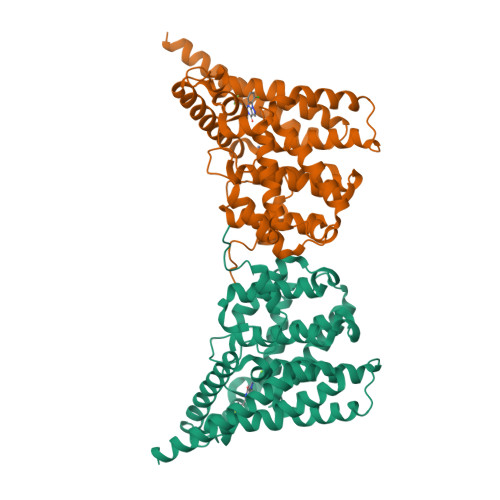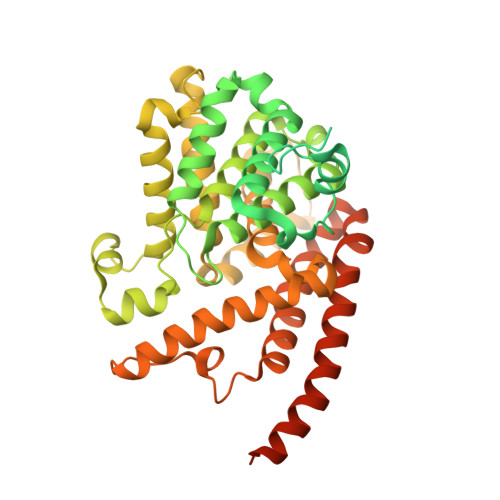Structural asymmetry of phosphodiesterase-9, potential protonation of a glutamic Acid, and role of the invariant glutamine.
Hou, J., Xu, J., Liu, M., Zhao, R., Luo, H.B., Ke, H.(2011) PLoS One 6: e18092-e18092
- PubMed: 21483814
- DOI: https://doi.org/10.1371/journal.pone.0018092
- Primary Citation of Related Structures:
3QI3, 3QI4 - PubMed Abstract:
PDE9 inhibitors show potential for treatment of diseases such as diabetes. To help with discovery of PDE9 inhibitors, we performed mutagenesis, kinetic, crystallographic, and molecular dynamics analyses on the active site residues of Gln453 and its stabilizing partner Glu406. The crystal structures of the PDE9 Q453E mutant (PDE9Q453E) in complex with inhibitors IBMX and (S)-BAY73-6691 showed asymmetric binding of the inhibitors in two subunits of the PDE9Q453E dimer and also the significant positional change of the M-loop at the active site. The kinetic analysis of the Q453E and E406A mutants suggested that the invariant glutamine is critical for binding of substrates and inhibitors, but is unlikely to play a key role in the differentiation between substrates of cGMP and cAMP. The molecular dynamics simulations suggest that residue Glu406 may be protonated and may thus explain the hydrogen bond distance between two side chain oxygens of Glu453 and Glu406 in the crystal structure of the PDE9Q453E mutant. The information from these studies may be useful for design of PDE9 inhibitors.
Organizational Affiliation:
Structural Biology Lab, School of Pharmaceutical Sciences, Sun Yat-sen University, Guangzhou, People's Republic of China.



















